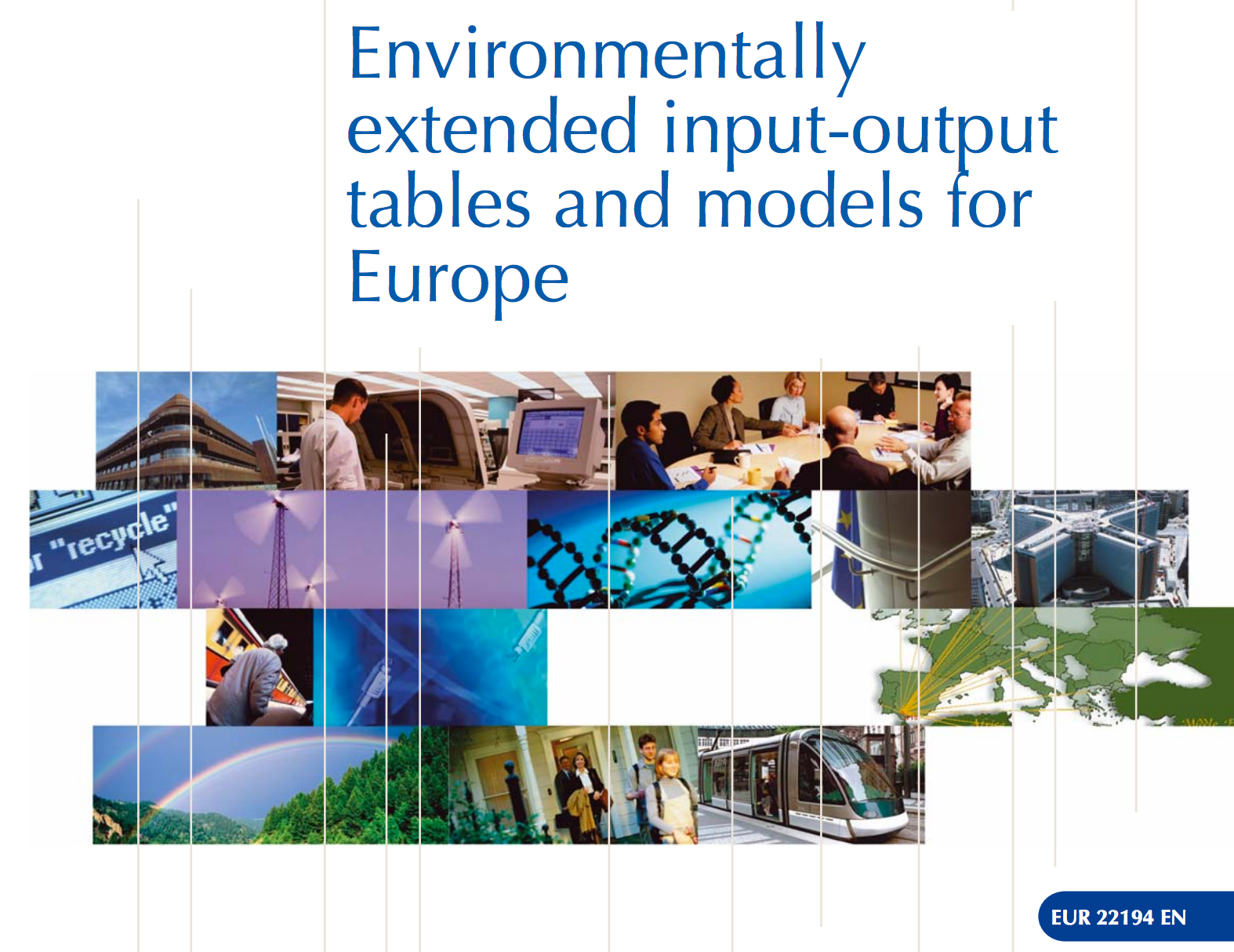Environmentally extended input-output (EEIO) tables and models have become a powerful element in supporting information-based environmental and economic policies. Briefly stated, monetary input-output (IO) tables give insight into the value of economic transactions between different sectors in an economy, including output for exports, capital formation and final government and private consumption. They allow for calculating the added value that each sector contributes to the final output of an economy. Such monetary IO tables can be ‘extended’ with environment-related information for each sector, such as its emissions, primary (natural) resource use, land use and other external effects per sector. These environmental externalities may be expressed in monetary terms as well. The same framework can be used to add other information, for example related to the third pillar of sustainability, regarding social aspects, such as the number and quality of jobs per sector. And, last but not least, such EEIO tables can be integrated in broader models, such as computable general equilibrium (CGE) models.
This ensemble forms an unrivalled toolkit for information-based policy-making because EEIO tables and models are based on a comprehensive accounting framework covering all economic activities. EEIO tables bring together economic and environmental data in a consistent, related sectoral framework. EEIO models based on them allow for analysing such data via a great variety of cross-sections of the economic system, such as the product perspective, or a sector perspective. If the EEIO tables and the related data collection system are set up rightly, it can fulfil multiple goals, and hence will probably greatly reduce the effort in data gathering for analysis, ex ante impact assessment and monitoring for a variety of environmental policy fields.
Background and goals of the project: Against this background, DG JRC/IPTS set up a call for tender for a project that would cover the following main tasks:
1. to describe the state of the art of IO tables with environmental extensions in Europe and outside, and to depict their usage and limitations;
2. to assess the potential application areas of IO tables with environmental extensions in European policy-making;
3. to evaluate the feasibility of producing and using IO tables with environmental extensions in European policy-making in the short, medium and long term;
4. to propose practical steps for exploiting the potential of European policy analysis based on IO tables with environmental extensions
Read the report here.













